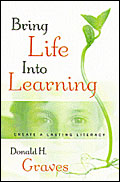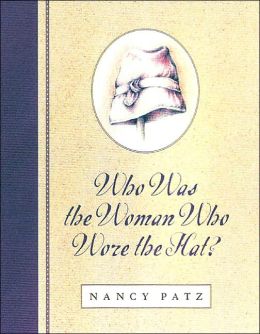Objects can tell us their stories.
What does this item in front of you say to you?
What happened to the object you are holding before it came to you?
What does this object want you to know?
Who owned this object, or looked at it, or held it, or lost it, or stole it, or hid it, or created it?
In Bring Life into Learning: Create a Lasting Literacy, Donald Graves suggests that one way to study and understand the times that have come before us is to interrogate the objects from those times, to ask questions of the artifacts that were used and produced by the people who lived in those times, to engage in conversations with the things that represent the culture and art, the history, the science--the lives lived in that time.
He suggests that we also question the characters who used the artifacts to gain a better understanding of their motives, their wants and needs.
According to Graves we ask about :
- Point of View or Particulars
What does this person want as she encounters and engages with others? What is this person's passions? What are the objects this person uses in pursuit of her passions, her wants and her needs?
- Polarity
As two people and their individual points of views meet, what choices do they make? What conflicts do these points of views and choices create?
- Paradox
As these two people meet how do their opposing positions lead to conflict and places where they are unable to resolves issues?
In addition, we might ask general questions as we speculate about characters and their respective objects:
How do objects play a role in the particulars, polarity and paradoxes?
What conclusions can we make?
What evidence is revealed in the details that support us in understanding a character's actions and the story's (history's) meaning?
What does this character want? Why does he want or need it?
Who opposes the character?
Does the character do anything inconsistent?
What is this object? What is its function? How does it relate to the character?
What does this have to do with me?
In Who Was the Woman Who Wore the Hat?, Nancy Patz engages in questioning a lone, unlabeled hat displayed in a glass case in the Jewish Historical Museum in Amsterdam.
Through progressively more detailed and probing questions, she speculates about the woman who wore this hat, her life...and her death.
Who was the woman who wore the hat I saw in the Jewish Museum? When did she buy it, and where did she wear it? I wonder if she wore it the day she left home the last time, that cold, cold day when the Jews were arrested in the Square. It could have been my mother's hat. It could have been my hat . . . or yours.
Deborah Meier founded the Mission Hill School in Boston, which teaches the following habits of mind as useful for effective democratic participation and deliberation in approaching problems, as well as in the academic disciplines :
1. Concern for Evidence ( How do you know that?)
2. Relevance and Impact (Who cares? Why should I care?)
3. Connection (How is this connected to other structures, forces and facts?)
4. Viewpoint or Perspective (Who said it and why?)
5. Conjecture and Hypothesizing ( How could it be different? What if? Supposing that . . . )
These questions can easily be adapted and applied as we think about characters, real or imagined, in history, science, culture, and our own lives. These questions can also be applied as we consider related objects connected to these same characters.
More about her work, the habits of mind and the Mission Hill School can be found in Democratic Education in Practice: Inside Mission Hill School by Matthew Knoester
For an expanded list of Habits of Mind questions click here.
For a related prompt and two poems in which I question a grey work glove and also a frayed rope, see Who Wore the Hat? in Deeper Writing (Chapter 2- pages-67-71)
What are artifacts saying to you?
What are they trying to tell you?
Ask them.
Today's Deeper Writing Possibilities
Select an object to examine closely-- to interrogate.
Write a series of questions that speculate about the history or origin, purpose or function, ownership or creation of this object?
What emotions does the object evoke?
How is this object connected to your own life?
Write your speculative questions in the form of a personal narrative, essay or poem.
Write a series of questions that speculate about the history or origin, purpose or function, ownership or creation of this object?
What emotions does the object evoke?
How is this object connected to your own life?
Write your speculative questions in the form of a personal narrative, essay or poem.



No comments:
Post a Comment